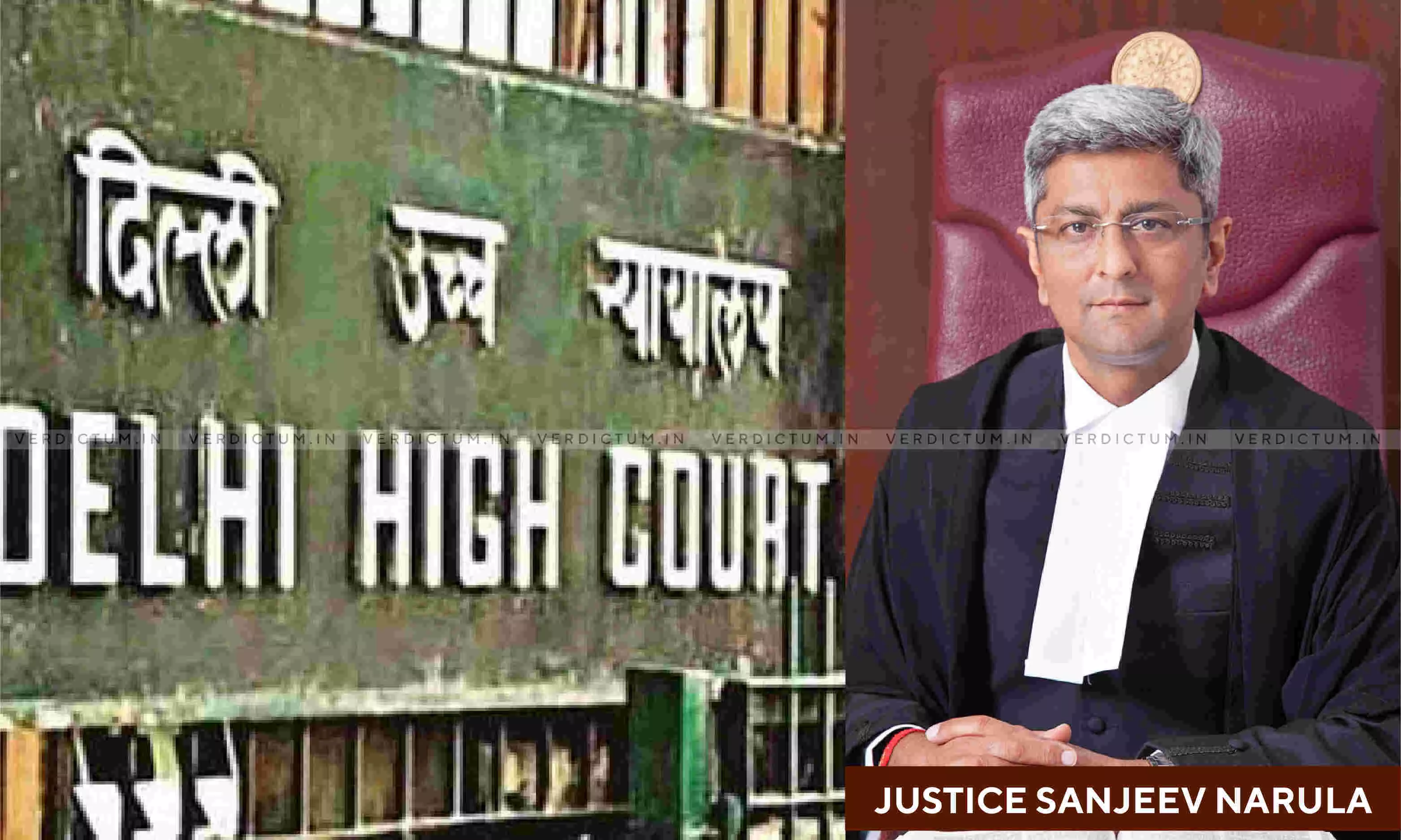
'Natural & Expected Step In Technological Development; No Leap In Innovation': Delhi HC Denies Patent To A Portable Vehicle Management System
 |
|The Delhi High Court has upheld the decision of the Patent Office to deny a patent to a Portable Vehicle Management System, by holding that the product lacked an inventive step.
In that context, the Bench of Justice Sanjeev Narula observed that, "The evolution from the fixed system described in D4 to the portable framework detailed in D5 does not constitute a ‘leap’ in innovation but rather represents a natural and expected progression in technological development. This transition aligns with prevailing trends toward greater mobility and flexibility in device usage, indicating that it may be seen as an obvious step to those skilled in the art. This transition, when viewed through the lens of mosaicking, shows a clear logical pathway that a skilled person could follow, using known technologies and without inventive ingenuity."
The Assistant Controller of Patents & Designs refused an Indian Patent Application for a 'Portable Vehicle Management System' on 27th December 2018, asserting that the application did not meet the inventive step requirement under Section 2(1)(ja) of the Indian Patent Act, 1970.
The appellant applied for the patent on 6th December 2016 and requested examination on 1st December 2017. The First Examination Report (FER) dated 21st March 2018 cited a lack of novelty and inventive step, referencing prior arts D1, D2, and D3. The claims were also deemed non-patentable under Sections 3(m) and 3(k) of the Act.
In response, the appellant amended the claims and submitted explanations on 9th April 2018. Despite these efforts, the Patent Office remained unconvinced and issued a hearing notice on 29th June 2018, restating objections and introducing prior art D4. During the hearing, the novelty objection was addressed, but a new objection under Section 2(1)(ja) was introduced, referencing additional prior arts D5 and D6.
The appellant submitted revised claims, but the Assistant Controller still found the claims obvious in light of D4 and D5, leading to the final refusal. The appellant argued that the primary feature of portability was not adequately addressed by the Controller and was not cited in prior art. The appellant claimed that the amended claims clearly described the portable nature of the device and its functionality. Furthermore, the appellant contended that the Controller's assessment was flawed, as it did not establish the standard of a Person Having Ordinary Skill In The Art (PHOSITA) and relied on hindsight in combining features from different prior arts. The appellant also emphasized that the invention's portability and its ability to remotely monitor vehicle operation were not addressed by the cited prior arts D4 and D5.
In contrast, the respondent defended the impugned order, arguing that each feature of the invention was obvious in light of the cited prior arts under Section 2(1)(ja) of the Act. The respondent compared each feature to the prior arts and stated that D4 disclosed a safety system for automotive vehicles, and D5 disclosed a portable device with inbuilt sensors monitored wirelessly through a remote server. The respondent further claimed that similar inventions were part of common general knowledge before the priority date and cited examples of portable vehicle trackers available on the market. The respondent concluded that it would have been obvious for a person skilled in the art to arrive at the claimed features through normal research and experimentation, thus rendering the claimed subject matter obvious and lacking an inventive step.
The High Court observed that, "Based on the detailed comparison and the combined teachings of D4 and D5, along with examples of common general knowledge, it is established that the claimed invention lacks an inventive step. The features of portability, comprehensive monitoring, and anomaly detection are either disclosed in or can be inferred from the prior arts."
Accordingly, the appeal was dismissed.
Cause Title: Mahesh Gupta vs Assistant Controller of Patents & Designs
Click here to read/download the Judgment